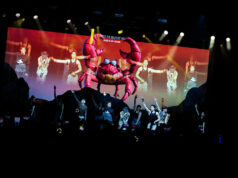Is the anonymity of the customer no longer sacred? Outside of banking and massage parlors, there seem to be no compunctions in calling out names in public places.
Although coffee places are considered in the fast food category, they have opted as a matter of brand niching to stretch out the ordering process. First, there are multiple flavors and combinations of these, cup sizes, and serving temperature (hot or iced) and other details like number of non-sugar sachets. Then, there is the actual preparation of the brew.
After paying for the order, the salesperson asks for the customer’s name. Maybe old people would wonder why the cashier wants to be so chummy, but regulars now what the “naming rites” are for. The customer is not supposed linger in front of the counter, but wait by a table looking at the takeout attendant with eagle eyes. The ready names are shouted out loud, so that even passers-by in the neighboring restaurant can hear it — tall cappuccino decaf with one Stevia for Mr. Twinkle Toes. Soto voce is not the preferred style of delivery.
Dispensing with anonymity for a caffeine shot is supposed to make the customer feel part of the millennial crowd that’s busy with their computers availing of free Wi-Fi. Add to that announcement the impression created of a pompous old dog choosing to be called by an obviously fake name, and one invites the attention denied him in the karaoke bar.
Do you just imagine heads turning when your surname is called? Other customers have warm and friendly nicknames — Deirdre, Yoda, Snow White with Dwarf Number Six.
Maybe in consideration of privacy, some coffee shops provide a disc that lights up and buzzes (can it also dance?) when the order is ready. One only has to bring the activated disc to the takeout counter and carry away his order. Other places provide a small metal marker the size of a folded wristwatch brochure with a big number painted on it. The waiter wends his way with his tray looking for the right number to deliver the appropriate order and change.
These other civilized alternatives to name-calling allow the customer to maintain his privacy, especially if he happens to be the dwarf with Snow White.
At the airport pre-departure area, the public address system shamelessly calls out names of laggards to please report to the ticket counter and quit delaying the flight or their luggage will be off-loaded. The Scarlet Letter (L for late) is branded by fellow passengers on the forehead of the straggling last-minute shopper at the Duty Free who stumbles into her seat with her head bowed. Her fellow passengers already know her name, after all. It has been called out several times in an ascending level of pique. She is sent death ray looks from all the rows.
Calling out names does not only pertain to customers.
The politician or social climber is advised to keep mentioning the name of a new acquaintance as a way of tightening social ties or extracting a favor. (Yes, Caramel. I also don’t understand why they’re obsessing over the location of a volcano.) It is believed that the frequent mention of a name predisposes a person to be friendly. It can also be truly irritating if it’s one is being called a wrong name — when do you correct her?
Sports figures know that they have arrived when they acquire a moniker from the sportscasters. This tag is considered unique to a particular player. And sportscasters consider it part of their job description to think up of interesting monikers for the athletes they cover. (And there goes the “Chunky Chihuahua” for his third turnover in three possessions.)
Job applicants, considered the lowest form of corporate life do not expect to hear their names mentioned in conversation. They don’t mind if the interviewer from HR gets it wrong — what’s your name again?
Name-calling as shorthand identification is associated with the derogatory substitution of one’s given name (the one on the passport) with a character flaw (shifty) or a lower form of life (amoeba). Colorful epithets for public figures are the stuff of headlines like the alliterative “political prostitute” or “garrulous grandstander.” The vernacular versions can even sound more outrageous.
Hearing one’s name called just to pick up an order of coffee from the counter should be dispensed with. In this case, it’s better to be quietly served… than noisily observed.
A. R. Samson is chair and CEO of Touch DDB.



